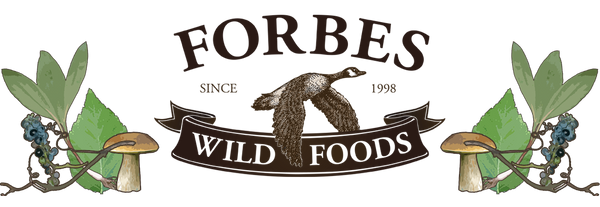로얄 콤부
로얄 콤부
로얄 콤부 또는 라미나리아 자포니카 는 다시마 범주에 속하는 갈조류의 일종입니다. 라틴어 이름에서 알 수 있듯이 이 해초는 일본 음식 문화와 관련이 있습니다. 그러나 서식지는 한 바다나 지역에 국한되지 않습니다. 포브스 로얄 콤부는 노바스코샤에서 지속 가능하게 수확되고 자연 건조됩니다. 길고 갈색 녹색 잎과 같은 잎은 온화한 향과 짠맛과 달콤한 과일 맛이 있어 또 다른 이름인 설탕 다시마가 생겼습니다. 잎에 흰색 가루 층이 보일 수 있습니다. 이것은 곰팡이가 아니라 짭짤한 아미노산 잔류물입니다.
로얄 콤부는 일본 요리의 기본이 되는 국물인 다시의 중추입니다. 다시를 만들려면 로얄 콤부 1온스를 차가운 물 4컵에 넣고 물이 끓기 시작할 때까지 가열합니다. 다시마는 즉시 제거하고 따로 보관합니다. 냄비를 불에서 내립니다. 가다랑어 조각 1온스를 넣습니다. 다시 불에 올려 몇 초 동안 액체를 끓인 다음 조각을 걸러냅니다. 비건 다시의 경우 가다랑어 조각을 생략하고 약간 식은 다시마 액체를 말린 송이버섯 1온스에 붓습니다. 버섯은 국물에 그대로 두거나 다른 요리법에 따라 제거합니다. 다시를 만드는 데 사용된 다시마는 냉장 보관하면 며칠 동안 보관할 수 있습니다. 샐러드나 수프에 넣기 위해 잘게 썰거나 생선 필레에 싸서 찜질합니다.
모든 해초와 마찬가지로 Royal Kombu는 육지에서 자라는 식물과 영양적으로 다릅니다. 해초는 칼슘, 칼륨, 요오드와 같은 미네랄 함량이 더 높습니다. 또한 단백질, 아미노산, 철분, 비타민, 수용성 및 불용성 섬유질이 풍부합니다. 특히 Royal Kombu는 요오드, 칼슘, 철분이 풍부합니다.

